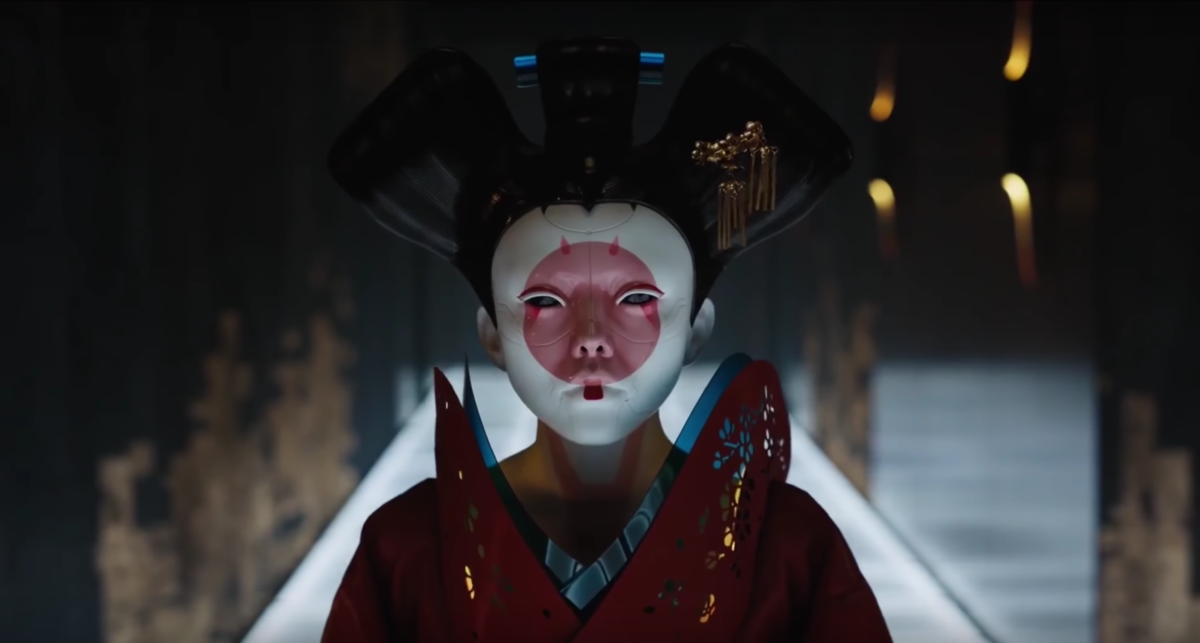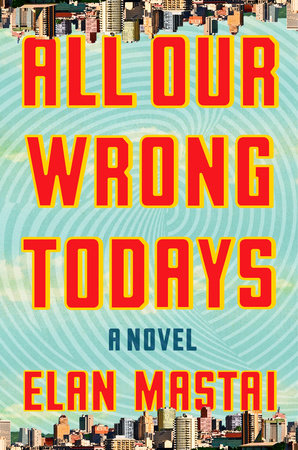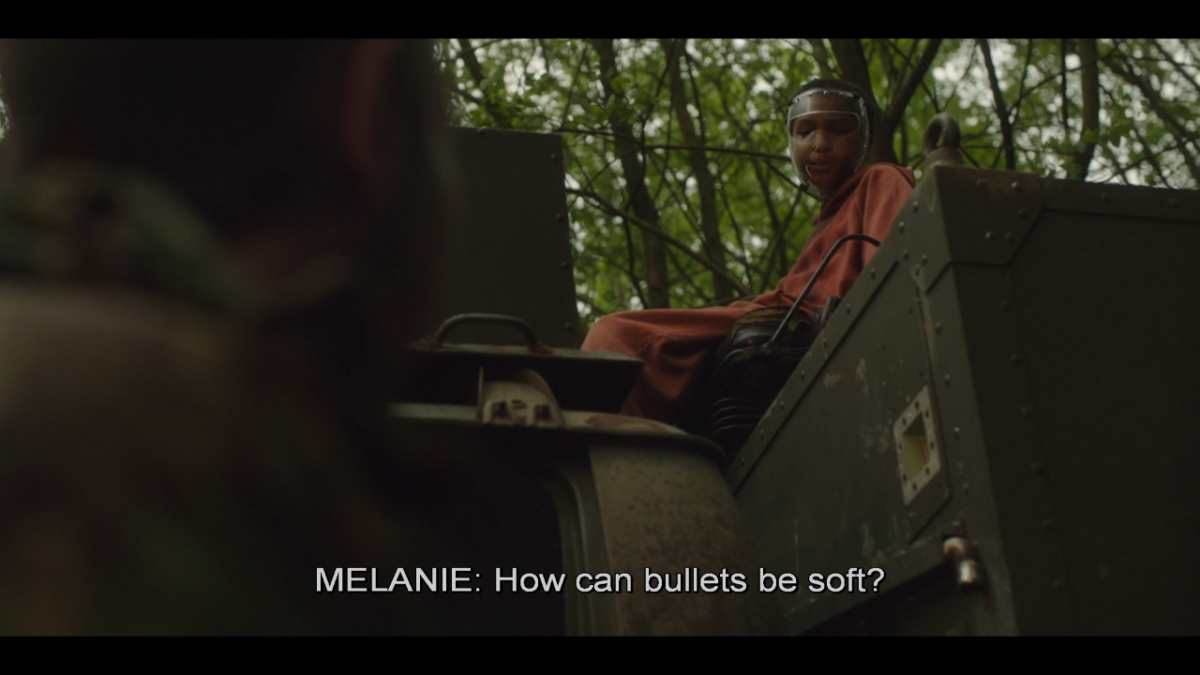Edifice. Ash Thorp’s latest short evokes the feeling we had waking in a jon boat at 5 a.m. to a glassy smooth lake disturbed only by the wake of an alligator nosing calmly past.
Category: The New New
Altered Carbon
After enjoying the first seven episodes of Happy!, which is impossibly good, we were elated to see that Netflix is releasing a series based on Richard K. Morgan’s 2002 novel, Altered Carbon.
The trailer looks as slick as a fresh sleeve. Our cup runneth over.
Saffron Van Bean at it Again
Electric Dreams – Season 1
This incredible show, Electric Dreams, from Channel 4 on the BBC first aired on September 18, 2017. It will not be available in the United States until 2018 unless you use a VPN and log in across the pond. Do not confuse this program with Addicted to Sheep or Electric Dreams, two other great programs from Channel 4.
The first episode of Electric Dreams, a series based on PKD shorts, is The Hood Maker. The first episode is based on PKD’s short story, Immunity, published during 1955 in Imagination. Channel 4’s adaptation explores the relationship between humans and what humans view as their evolutionary replacement.
We have only watched two of the four episodes available as of today, but both were well produced and did not disappoint us despite our high expectations.
Happy!
If you had told us that Grant Morrison and Darick Robertson‘s Happy! had been optioned, we might have bought it, but we would never have thought that it would go into production.
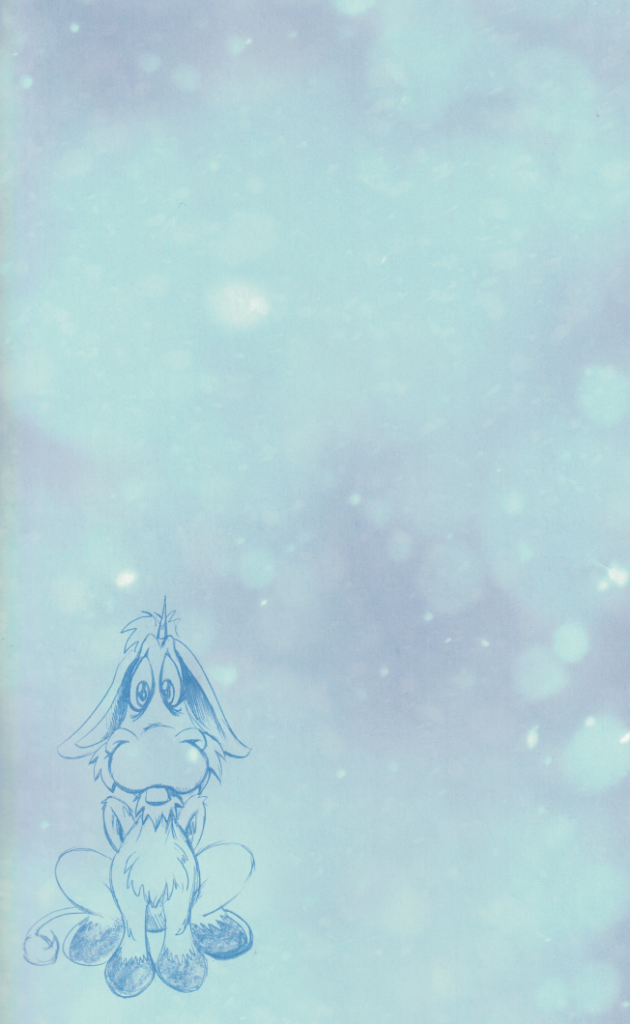
After a member, who is at the top of her game in the world of 3D modeling, insisted that we watch the trailer, we washed the mud from our eyes and believed. If you have not read the comic, it is a four chapter narrative arc that is so good we keep extra copies lying around to foist upon unsuspecting friends and acquaintances. Listening to Patton Oswalt as Happy, the blue, winged horse (shown to the left) whose reckless optimism is something we aspire to, we cannot imagine any other human capable of pulling off the voice-acting Triple Lindy that makes the trailer.
The series premiers on December 6, 2017. We only hope that the characters do not fall victim to the format of a serialized television show. How many seasons of The Walking Dead are there? It became a soap opera in the first one, and it fucking sucks. We expect better of Happy!
![]()
![]()
Blade Runner 2049
You should see this on the big screen. We will publish our review after it leaves theaters with the hope that you avoid other reviews before consuming it.
Ghost in the Shell – New Trailer
The new live action Ghost in the Shell is out March 31. We will try to get a preview for you ahead of time, but regardless of whether it is a spiritual successor or just eye candy, we are dying to see it.
Why do we always have to wait for the Super Bowl to end before decent content is released?
Arrival
Should you watch Arrival? Yes. You should watch Arrival. This is the film Contact (“Whatever it is, it ain’t local.”–sorry Jodie) wanted to be twenty years ago.
Arrival begins with a trope best known from Arthur C. Clarke’s Childhood’s End, not to be confused with the television adaptation that, tragically, fell victim to the pitfalls of that format but is definitely still worth a watch. Twelve large coffee beans, obviously representing the Apostles, appear hovering at various positions on Earth and offer contact in the form of doors that open periodically to allow ingress.
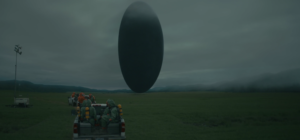
This film caught us completely off guard. We remained deeply skeptical even after enjoying the first half of the film, but as the pieces clicked together, we were swept away by Arrival’s elegant undertow. If you are caught in a riptide, you should swim sideways. We let this one carry us out to sea.
We cannot say too much about the film, except that it depends on the Sapir-Whorf Hypothesis. Our rudimentary understanding is that the language you speak defines the way in which you think. We are not linguists, but this does remind us of Marshall McLuhan’s theory that a medium that enables communication also structures, or limits, communication. (The DMS recommends this reader if you are unfamiliar with McLuhan.) Noam Chomsky’s work is heavily critical of the Sapir-Whorf Hypothesis, and it looks as though modern linguistic theorists (yes we know that Chomsky is still alive) are also skeptical.
We realize that we are mixing linguistic theory and media theory, but when you have a scumbag in office whose preferred method of communication is limited to 140 characters, it is worth thinking deeply both about language and the media we use to communicate. Arrival begs us to think deeply about these things insofar as it literally centers on our relationship with aliens. The message there is relatively overt.
To use an example from McLuhan, think about an automobile as a medium for communication. We built our country’s infrastructure around the automobile, and now we are finding it difficult and costly to change that infrastructure. Here at the DMS, we care about how people consume media and communicate. Arrival explores how we may be limiting ourselves.

All Our Wrong Todays
One of the benefits of being kind to librarians is the occasional advanced proof of a book that feels written just for you. Sometimes, as is the case with Elan Mastai’s wonderful All Our Wrong Todays, these advanced copies even include a short note beginning with “Dear Librarian,” which makes even the Dystopian Movie Society feel intellectual and savvy.
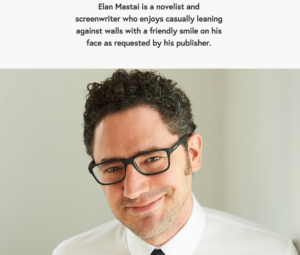
Mastai’s stunning first novel is a break from his day job, writing movies. No wonder we here at the DMS fell in love. The main character, whose name I shall not print here for reasons that will become apparent if and when you purchase and read this book, is kind of a dick. Naturally, we can all relate to him.
The narrative begins in a utopian society, fueled quite literally by the invention of a device that harnesses the rotation of the Earth to generate unlimited clean energy. Because the inventor dies shortly after his proof of concept, he makes this technology free and open to everyone. Maybe we have watched too many films of a certain genre, or maybe we know too many human beings, but the DMS is deeply skeptical of the idea that unlimited clean energy would lead to the utopia described at the beginning of Mastai’s brilliant story.
The utopia readers see at the start of the book, however, is a prelude to the time travel narrative in which our protagonist becomes the first time-traveler, accidentally creates our reality as a dystopian alternate timeline, discovers the concept of temporal drag, and maybe loses his mind. It is phenomenal. Of the many differences noted between the teased utopia and our own world, my favorite was Kurt Vonnegut.
As the main character tells it, “Vonnegut’s writing is different where I come from. Here, despite his wit and insight, you get the impression he felt a novelist could have no real effect on the world. He was compelled to write, but with little faith that writing might change anything. . . . [I]n my world Vonnegut was considered among the most significant philosophers of the late twentieth century. This was probably great for Vonnegut personally but less so for his novels, which became increasingly homiletic.”
So it goes.
*
If you enjoyed Charles Yu’s How to Live Safely in a Science Fictional Universe, you will love All Our Wrong Todays. Both deftly navigate the narrative pitfalls of branching alternate realities while somehow making the personal relationships explored in each book more important than their time travel plots.
Pre-order All Our Wrong Todays before we run out of tomorrows. Excerpts of the book, ready for public consumption on February 7, 2017, may be read here and here. Support great literature by buying this wonderful read here.
The Girl With All the Gifts
It is a fair bet that any film described by critic Jay Weissberg as “[a] tired attempt to board the zombie bandwagon . . . ” can happily hitch a ride with us. Sure, the film is a bit heavy handed at times, but maybe every fucking person in the United States should be slapped around a little bit. We loved the film, based on the book by M. R. Carey, and look forward to its release in North America.
Our favorite character is Melanie, a young black girl growing up in prison. If it is not thought provoking to see a group of heavily armed, mostly white people so terrified of a petite black girl that they keep her in Hannibal Lecter style restraints for most of the movie, then you probably live in South Dakota and think racism is something the Texas School Board of Education includes in children’s history books as a footnote somewhere near the hills of Georgia.
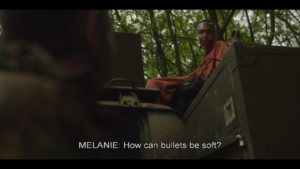
The narrative, and sometimes feel, of this movie draw favorable comparisons to The Last of Us, which finally convinced a lot of parents to throw in the towel and decide that video games might possibly be capable of artistic achievement. Both build on the not implausible idea that a fungus could give humankind a run for its money. We have not put up much of a showing lately, and, as it turns out, fungi have been carrying a lot more weight than we thought. The Girl With All the Gifts also shares some commonalities with one of Warren Ellis’s better recent comics, Trees, which is worth picking up at your local comic book shop.
The pacing is sometimes slow, following Melanie’s still-sharp mind as she attempts to make her way in the only world she has ever known. Rather than detract from the film, it evokes the same feelings this viewer had watching children dancing under sunlight in David Gordon Green’s George Washington. What Melanie realizes is that the “end of the world” just means “the end of humanity as we know it.” Frankly, that might be a welcome development.
As we recall, we have been promised that the world will never again be destroyed by flood. We do not remember any such promise with respect to fungi.
By the way, those zombies are what you look like visiting Times Square. Except the zombies move a lot faster and seem to have a goal in mind.

